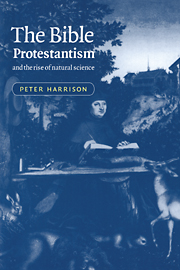5 - The purpose of nature
Published online by Cambridge University Press: 20 November 2009
Summary
So that clearly we must suppose … that plants exist for the sake of animals and the other animals for the good of man, the domestic species both for his service and his food, and if not at all events most of the wild ones for the sake of his food and of his supplies of other kinds, in order that they may furnish him both with clothing and with other appliances. If therefore nature makes nothing without purpose or in vain, it follows that nature has made all the animals for the sake of man.
Aristotle, PoliticsFor us the windes do blow,
The earth doth rest, heav'n move, and fountains flow;
Nothing we see but means our good,
As our delight or as our treasure;
The whole is either our cupboard of food
Or cabinet of pleasure.
George Herbert, ‘Man’.Let man then contemplate the whole of nature in her full and lofty majesty, let him behold the dazzling light set like an eternal lamp to light up the universe, let him see the earth as a mere speck compared to the vast orbit described by this star, and let him marvel at finding this vast orbit itself to be no more than the tiniest point compared to that described by the stars revolving in the firmament…
The eternal silence of these infinite spaces fills me with dread.
Pascal, PenséesThe Ends of the Creation
With the collapse of the sacramental view of the cosmos, those questions which had previously found solutions in the symbolic character of natural objects posed themselves anew.
- Type
- Chapter
- Information
- The Bible, Protestantism, and the Rise of Natural Science , pp. 161 - 204Publisher: Cambridge University PressPrint publication year: 1998



